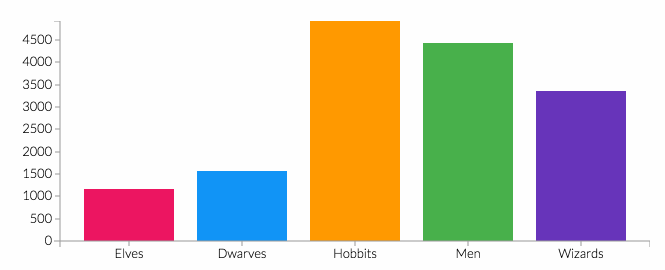PENGASUHAN ANAK USIA DINI DI ERA TEHNOLOGI DIGITAL
DOI:
https://doi.org/10.33853/jecies.v3i1.415Abstract
Digital technology, such as gadgets (hardware) and their applications (software), has been able to change the world order in interacting and communicating. In the process of parenting early childhood, the use of gadgets is nothing unfamiliar. However, the use of gadgets, without control, in parenting, can make children experience a change in mental and attitude where gadgets begin to dwindle the attachment of children's relationships to parents and switches it into the attachment to gadgets. The use of digital technology for early childhood at home and school has increased in intensity, especially during the Covid-19 outbreak. The teaching and learning process in schools has changed from face-to-face meetings (offline) to long distance meetings (online). The purpose of this study is to anticipate early childhood from being addicted to gadgets, and parental control is needed then, mainly in controlling the duration of the use of the gadget devices and the selection of the content in the form of pictures/videos that the children watch. The task of parents is to be a controller in the transfer process of knowledge, values, and guidance. Thus the mental and psychological health and moral of children are well maintained. The results of this literature research show that "children with a high duration of smartphone use without parental supervision have lower pro-social behavior than other children who use devices under parental supervision". Also, “the higher the intensity of smartphone use, the lower the interaction of children with their parents. On the other hand, the lower the intensity of smartphone use, the higher the interaction between children and their parents.â€
Keywords: Parenting, early childhood, and the era of digital.
References
Aisa, A., & Lisvita, L. (2020). Penggunaan Teknologi Informasi dalam Pembelajaran Online Masa Covid-19. JoEMS (Journal of Education and Management), 3(4), 47–50. http://ojs.unwaha.ac.id/index.php/joems/article/view/308
Anwar, R. N., & Azizah, N. (2020). Pengasuhan Anak Usia Dini Di Era New Normal Perspektif Islam. Thufuli : Jurnal Ilmiah Pendidikan Islam Anak Usia Dini, 2(2), 1. https://doi.org/10.33474/thufuli.v2i2.8966
Aslan, A. (2019). Peran Pola Asuh Orangtua di Era Digital. Jurnal Studia Insania, 7(1), 20. https://doi.org/10.18592/jsi.v7i1.2269
Christianti, O. M. (2007). Anak dan Bermain.
Fatha Pringgar, R., & Sujatmiko, B. (2020). Penelitian Kepustakaan (Library Research) Modul Pembelajaran Berbasis Augmented Reality pada Pembelajaran Siswa. Jurnal IT-EDU, 05(01), 317–329.
Juwita, D. R. (2018). Pendidikan Akhlak Anak Usia Dini di Era Millenial. At-Tajdid: Jurnal Ilmu Tarbiyah, 7(2), 282–314.
Khairi, H. (2018). Karakteristik Perkembangan Anak Usia Dini dari 0-6 Tahun. Jurnal Warna, 2(2), 15–28. ejournal.iaiig.ac.id ? index.php ? warna ? article ? download
Kristyowati, Y. (2021). Generasi “Z†Dan Strategi Melayaninya. Ambassador: Jurnal Teologi Dan Pendidikan Kristiani, 2(1), 2.
Makagingge, M., Karmila, M., & Chandra, A. (2019). PENGARUH POLA ASUH ORANG TUA TERHADAP PERILAKU SOSIAL ANAK (Studi Kasus Pada Anak Usia 3-4 Tahun di KBI Al Madina Sampangan Tahun Ajaran 2017-2018). YaaBunayya Jurnal Anak Pendidikan Usia Dini, volume 3 n, 115–122. https://doi.org/10.24853/yby.3.2.16-122
Marsal, A., Hidayati, F., Studi, P., Informasi, S., & Manajemen, P. S. (2017). Pengaruh Smartphon Dengan Interaksi Sosial. Jurnal Ilmiyah Rekayasa Dan Manajemen Sistem Informasi, 3(1), 78–84.
Muhammadiyah, U., & Barat, S. (2020). Penguatan Keluarga Menghadapi Kekerasan Terhadap Anak di Era Digital Desi Asmaret. Jurnal Al-Himayah, 4, 253–268. http://journal.iaingorontalo.ac.id/index.php/ah
Novianti, R., Febrialismanto, F., Puspitasari, E., & Hukmi, H. (2020). Meningkatkan pengetahuan orang tua dalam mendidik anak di era digital di Kecamatan Koto Gasib Kabupaten Siak Provinsi Riau. Riau Journal of Empowerment, 3(3), 183–190. https://doi.org/10.31258/raje.3.3.183-190
Oktavianto, E., Karimah, K., Timiyatun, E., & Badi’ah, A. (2019). Pelatihan bermain pada ibu meningkatkan kelekatan anak. Medisains, 16(3), 120. https://doi.org/10.30595/medisains.v16i3.3630
Rahmat, S. T. (2018). Pola Asuh yang Efektif dalam Mendidik Anak di Era Digital. Journal Education and Culture Missio, 10(2), 143. https://repasitory.stikipsantupaulus.ac.id/122/1/Artikel-jurnal-missio
Rouf, A. (2019). Reaktualisasi dan Kontekstualisasi Kearifan Lokal dengan Manhaj Global: Upaya menjawab problematika dan tantangan pendidikan di era Society 5.0 dan Revolusi Industri 4.0. Seminar Nasional Pascasarjana 2019, 910–914.
Syamsuar, & Reflianto. (2018). Pendidikan dan Tantangan Pembelajaran Berbasis Teknologi Informasi di Era Revolusi Industri 4.0. Jurnal Ilmiah Teknologi Pendidikan, 6(2), 1–13.
Santrock, John W, Live Spain Development Perkembangan Masa Hidup, (Jakarta:Penerbit Airlangga, Ed.5, 2002).
https://parentingiseasy.id/perkembangan-anak-itu-unik-dan-tidak-seragam/
https://patient.info/mental-health/stress-management/acute-stress-reaction
https://positivepsychology.com/attachment-style-worksheets/
http:/www.facebook.com/harry, hasan.sqntosa/post/10206528347117551.
https://www.gramedia.com/best-seller/revolusi-industri-4-0/
Mubara, Kayla dkk.(2017).Smartmom untuk generasi Smart, (Yogyakarta: DIVA Press)




